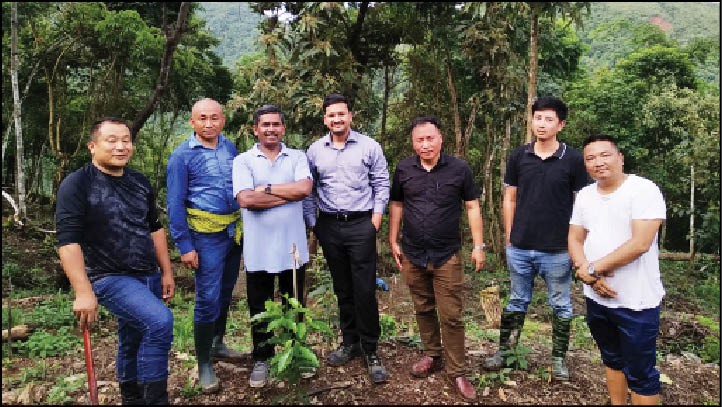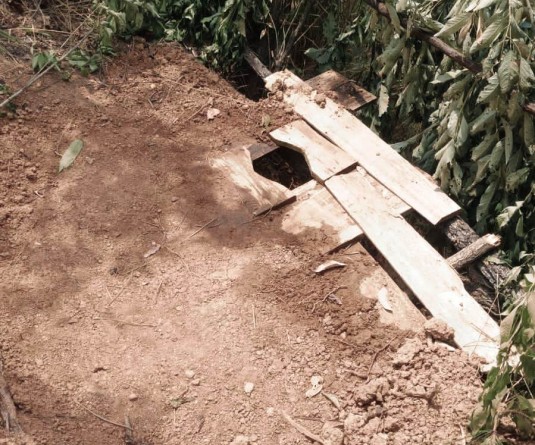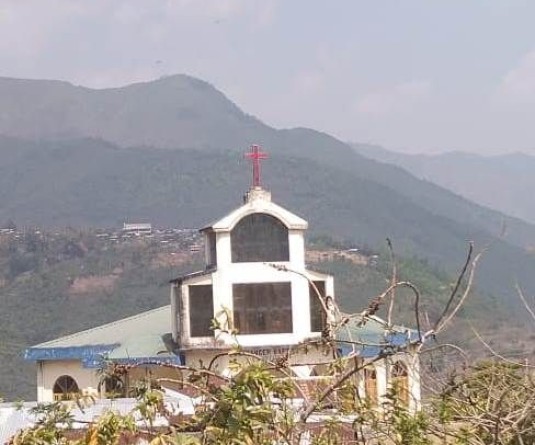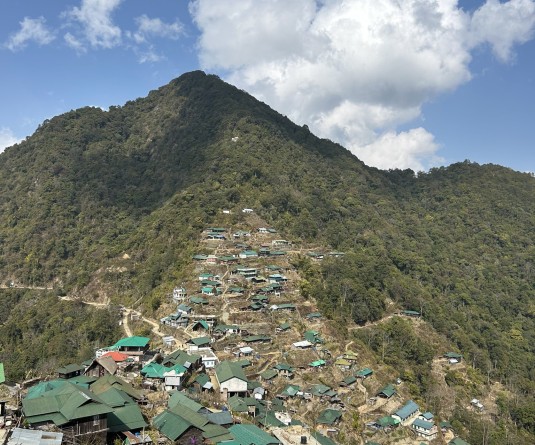Left – Right: Dr. Menuosietuo Tseikha, DPO, Horticulture, Vibeilietuo Kets, R.Ramakhrishnan, IAS, Dinesh, IPS & others during a recent visit to the coffee farm in Gariphema village.

Vishü Rita Krocha
Kohima | June 23
With at least 700 coffee growers in Kohima district alone, numbers of farmers taking up coffee plantation are increasing all across the state of Nagaland.
During the period 2015-2018, following the revival of coffee in the state in the year 2015, over 23, 84,000 saplings were distributed in Kohima district alone. The district is also home to 29 nurseries that exclusively cater to growing coffee.
As a result of coffee production in the state, a total of 17000 kgs of coffee (mostly Arabica) were exported to South Africa at the rate of Rs.100 per kg last year. Speaking to The Morung Express, Dr. Menuosietuo Tseikha, District Project Officer (DPO) Kohima said these were sourced from farmers growing coffee in different parts of the state. Also impressing upon that there is immense scope in improving the socio-economic status of our farmers through coffee plantation, he said, “growing coffee is a laborious job but comparing to other crops, the labour is a lot less.”
He further pointed out that “our population is increasing but our land is not.” Towards this end, he said they are encouraging coffee intercropping with black pepper as it helps protecting the plants and gives shade as well. Apart from this, they are also encouraging poultry farming and bee keeping for the respective roles they play.
In Gariphema village also lays one of the biggest coffee farms spread across an area of about 14 hectares. The farm belongs to Vibeilietuo Kets, who earlier introduced coffee plantation in the village having recognized the positive impact it can have on farmers. As somebody who grew up farming, he firmly believes that growing coffee can boost the economy of the village. After introducing it to the village, many farmers and groups have also taken up coffee plantation, adding to the increasing number of coffee growers in the state.
Vibeilietuo Kets ventured into coffee farming by planting 20,000 saplings last year and has added another 5000 making it a total of 25000 coffee plants in his farm. Besides coffee, he is also growing avocado and black pepper.





